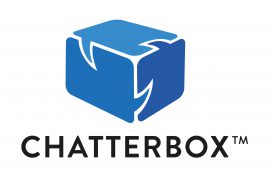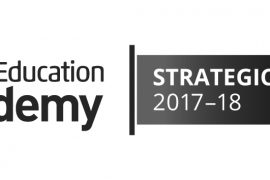Higher Education Support Amendment Bill 2023
Legislative changes
The Higher Education Support Amendment (Response to the Australian Universities Accord Interim Report) Bill 2023 passed both Houses of Parliament on 19 October 2023 and is effective 1 January 2024. The Bill requires universities to publish and maintain a ‘Support for Students Policy‘ and be able to report to the Minister of Education about how they are complying. In replacing the previous pass rate measures, which required domestic students to pass at least 50% of their units to be eligible for a Commonwealth Supported Place, the new legislation emphases the need for universities to support students whilst they are studying in units. The amended legislation requires us to have “processes for identifying students at risk of not successfully completing their units of study and supports available to students to successfully complete their studies”. Amongst this and other requirements, the guidelines state the need for:
- Pre-census identification and support for students at risk in their units of study,
- Systems for the provision of academic and non-academic support to students, and
- Regular contact, identification, and support provided by academic staff to those at risk of failing.
Support for Student Policy
The new Support for Student Policy was approved on 18th December 2023 and is available on the Policy Register.
Changes to the Assessment Procedures and consequences for 1000-level units of study
As described below, these requirements are both welcomed and grounded in good practice. As a first step in addressing these requirements, Academic Board approved changes to the Coursework Policy and Assessment Procedures:
All 1000 level unit subjects must include an assessment task identified as an ‘early feedback task’ in the unit outline. This assessment:
- aims to provide students with early feedback on whether they are ready for academic success in the unit,
- may have low weight or no weight in the assessment framework for the unit, and
- is used for academic staff to send personalised communications to students on their progress with links to support services.
The early assessment should be timed such that feedback can be provided, communicated and acted on before the census date for the unit.
The ‘early feedback task’
Does providing early feedback work?
As detailed in a recent article Supporting students through pre-census assessment and feedback, there is considerable evidence that early assessment and feedback increases student engagement and belonging, helps them adjust their study strategies and improve their performance. Just as importantly, early assessment enables educators to intervene and provide targeted supported. Early, low stakes assessment and feedback is particularly important for commencing and equity students as it fosters engagement and understanding of their capability and the expectations and standards of their educators.
Why census date and when does the early feedback task needed to be marked by?
Unlike ‘diagnostic’ assessment, which occurs before teaching starts and gives information on students’ preparedness to study, early assessment provides an opportunity for feedback to educators and students on their understanding of the introductory content in the unit. Census date marks the point that students make a financial and academic commitment to the unit of study and is thus, as called out in the HESA, a key point by which they should be provided with feedback so that they have sufficient time to seek help. Under legislation, the census date for a unit running in a semester or in an intensive session must be set when at least 20% of the teaching has already occurred. The census dates for Sydney are set by the Academic Board and are available on the public-facing website.
For units running in semester 1 2024, the early feedback task must be completed by students by the end of week 3, with feedback provided to students by Monday of week 4. For units running in the intensives, where the census date typically occurs around day 10 of teaching, feedback must be provided by day 7.
What type of assessments should be used?
Over 50% of our 1000-level units already have a suitable task or tasks. Typically, these involve multiple choice or other automatically marked quizzes including weekly pre or post-class quizzes. In disciplines where writing tasks are preferred, text analysis and peer review writing activities, reading tasks and minute papers can be used, typically with a rubric so that marking can be completed in class. In cases where insufficient material has been covered by week 3, more generic quizzes can be built to orientate students to the Canvas site, activities and assessments in the unit or to student support and wellbeing services. More examples from across disciplines are available in the recent article on early assessment.
Can existing or multiple assessments be used?
As noted above, many coordinators already have suitable tasks and some use weekly tasks to provide students with structure and regular feedback. Others may wish to replace or build new tasks. The implementation at Sydney supports all of these approaches. A Canvas assignment group called the “early feedback task” will be added to the Canvas site for each 1000-level unit of study as they are created. The new or existing assessment task or tasks just needed to be added to this assignment group. Alongside supporting multiple tasks, this approach makes it easier to support staff and students across every unit of study as the assignment group will always have the same name.
What weighting should the assessment(s) have?
As noted above, the assessment(s) can have a zero or low weighting. Students will be completing tasks in all of their 1ooo-level units and so a weighting above 10% is not recommended.
Special consideration and simple extensions
If a zero weighted assessment is used, then no special consideration will be available. For other assessments, the normal special consideration process will apply. It is recommended that assessment types from the category ‘In-class, small and continuous assessment’ such as online quizzes are chosen to be the early feedback task(s), so that special consideration can be processed quickly. It is not recommended that written assignments are used, for which automatic simple extensions apply, for the early feedback task.
Providing students with personalised feedback and advice
Before census date, coordinators in each 1000-level unit of study will be supported at three points to communicate with and identify and support students potentially at risk:
- Week 0: Before teaching begins, students will receive a communication welcoming them to the unit, with details of support available.
- Week 2: Before the ‘last day to add’ a unit, students who have not logged into Canvas will receive a communication offering help connecting with services, including support in using Canvas. For those enrolling at the end of week 2, this communication will also link students to study help to assist them in catching up.
- Week 4: Students who have not completed or have not succeeded in passing the early feedback task will receive a communication linking them to academic and support services.
These communications will be sent by email and SMS by the coordinator with a central reply-to address. The latter will ensure students can be supported in pastoral matters promptly with academic questions returned to the coordinator.
How will be communications be sent?
The Student Engagement Relationship Systems (SRES) is a powerful communication tool, built at Sydney by and for educators. It is used by about 1/2 of coordinators already and is particularly useful for personalising learning support in large units. It connects to Canvas and other systems to provide online spreadsheets called “lists” containing student information and marks. Lists will be built for each 1000-level unit of study. It then uses “filters” to construct and send personalised communications to students based on this data. For example, a “filter” will be built for each 1000-level unit of study which will only send messages to students who have not completed the early feedback task and a different message to those who have completed but not passed it. The messages themselves will also be provided to coordinators and can be personalised to the context of the unit.
As noted above, these emails and SMS messages will be sent by the coordinator but the reply-to address will be to a central support unit. This enables separation of academic and pastoral support, and for communications to be tracked and support triaged to the appropriate service or back to the coordinator.
Alongside construction of the necessary SRES lists and filters, training and support in the use of SRES will be available.
How will the changes be communicated to students?
The ‘Support for Students Policy’ will be published on the University website by 1st January 2024, as required in the legislation, alongside information on our processes to support students including the introduction of the early feedback task. Building on our current approach to transition, information will also be added to the transition units designated in each undergraduate degree to ensure commencing students are aware of the early feedback task in each of their 1000-level units and its role in providing them with targeted support.
Unit outlines
Text will be added to unit outlines in every unit of study, linking students to the ‘Support for Students Policy’ and support services and highlighting their responsibility in checking their University email regularly. Additional text will be added to the outline for each 1000-level unit of study with information about the presence and purpose of the early feedback task.
How will coordinators be supported?
Workshops with more details on the process outlined above, including how to use SRES, will be provided before semester and ahead of census date. Educational design support for designing and implementing new assessments will be coordinated by Educational Innovation and faculty teams.
Tell me more!
- Higher Education Support Amendment – intranet page on the new legislation and the University of Sydney’s response.
- Supporting students through pre-census assessment and feedback – review of the literature of early feedback and examples of suitable assessments from across the disciplines.
- Marking and feedback of early feedback tasks (EFT) – advice on how to provide meaningful feedback and links to associated literature
- Personalising learning support in large units using SRES – information on how to use SRES to personalise communications.
- Read the updated Coursework Policy and Assessment Procedures and the new Support for Students Policy on the Policy Register.






3 Comments